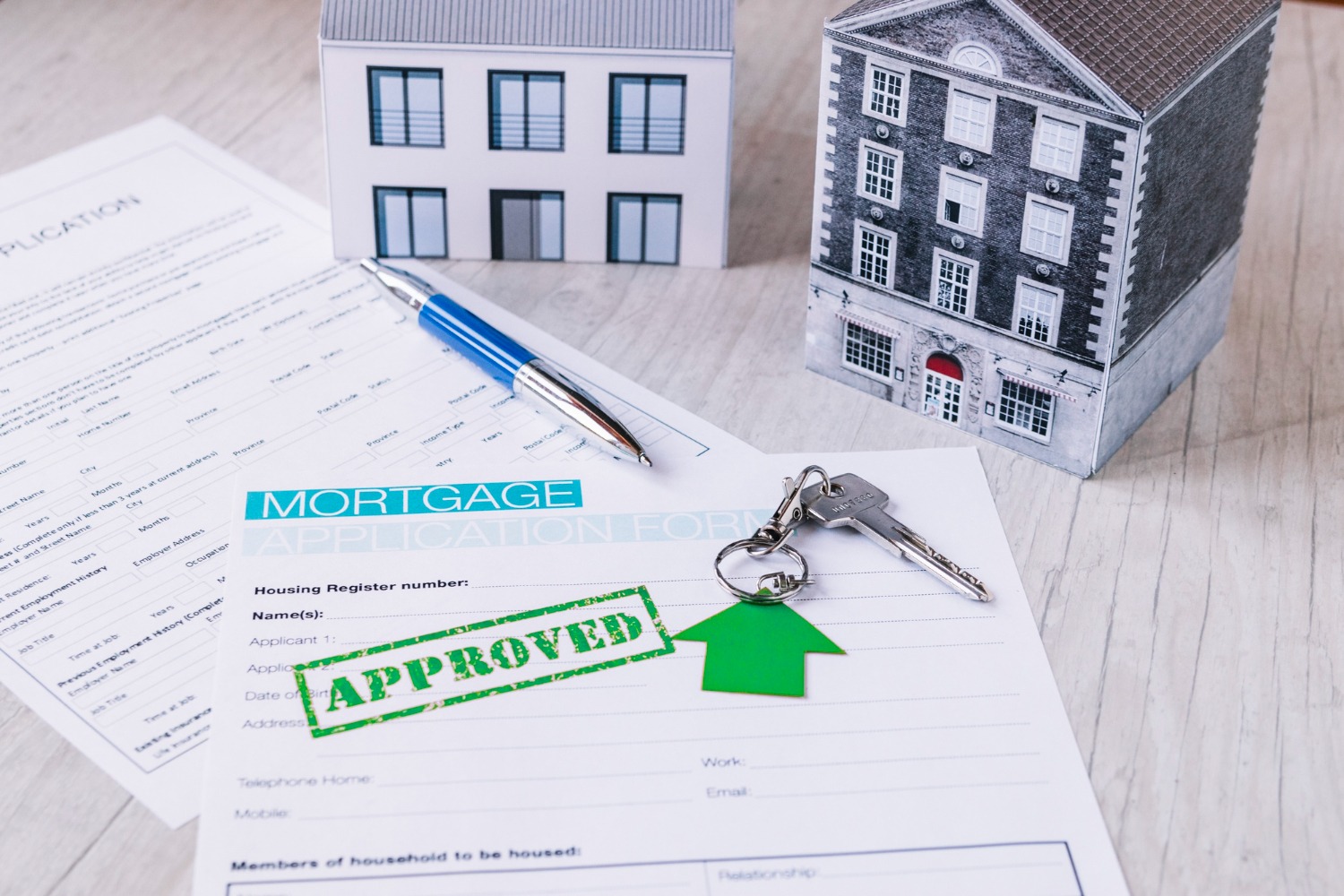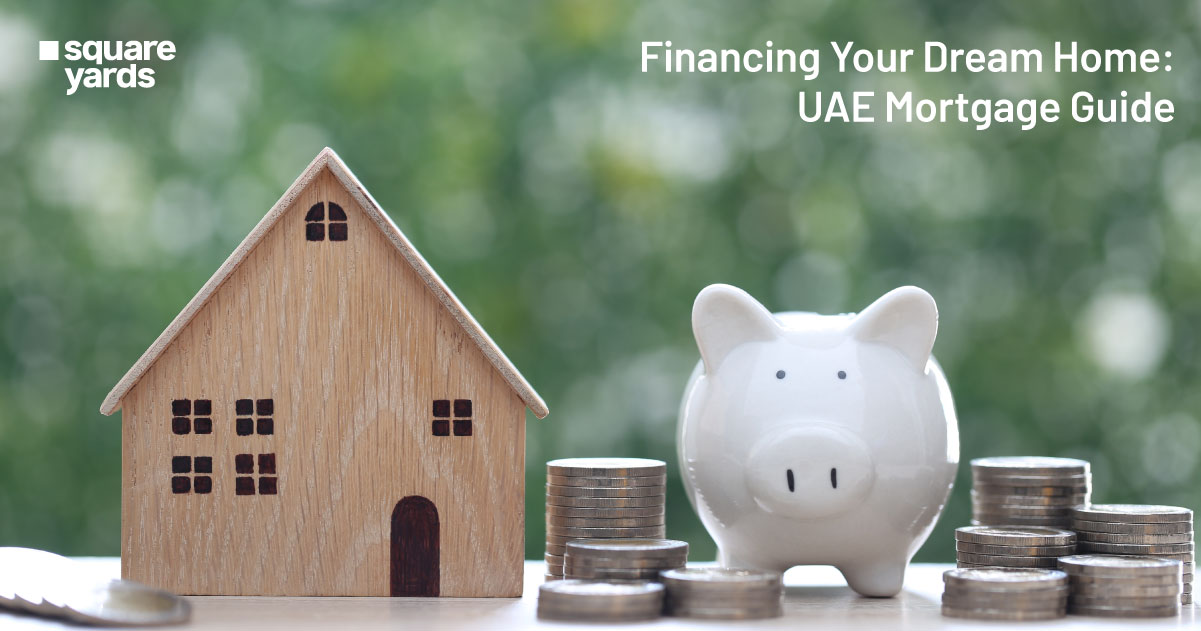Step into the exciting world of home finance in the UAE, where every turn offers both challenges and opportunities. Say goodbye to cookie-cutter solutions and hello to a personalised journey that suits your dreams perfectly. Whether you’re figuring out mortgage financing, exploring Islamic finance mortgages, or searching for the ideal home loan, this guide is your ticket to success.
Our goal? To give you helpful tips and know-how to manage home finance option like a pro, making complex mortgage rates and loans easy to understand. Let’s skip the confusing terms and make home financing in the UAE as refreshing as an oasis in the desert.
Let’s explore each of these crucial aspects of home financing in the UAE, aiming to provide comprehensive insights and guidance.
What are Traditional Mortgages?
Traditional mortgages are a popular and simple way to pay for your home. In the UAE, banks, both local and international, have different mortgage options with different interest rates and payment plans. It’s important to compare them, looking at things like whether the interest rate stays the same or changes, how long you have to pay back the loan, and any extra fees.

-
Understanding Interest Rates
Interest rates are crucial because they determine how much you pay each month and the total cost of your loan. In the UAE, banks offer fixed rates (which stay the same), variable rates (which can change), and capped rates (which are variable but have a maximum limit). Smart buyers monitor market trends and bank policies to get the best rates.
-
Down Payments – Your Investment
The UAE Central Bank says expatriates must put down at least 20% and UAE nationals 15% (for properties under AED 5 million). Paying this upfront helps lower your loan-to-value ratio, which means lower interest rates and monthly payments. You might need to save aggressively or seek special financial help to collect your down payment.
-
Repayment Periods – Planning for the Long Term
Pick a repayment period that fits your finances and goals. Longer terms mean smaller monthly payments but more interest overall. Consider your income stability, future expenses, and retirement plans before deciding.
-
The Details – What You Need
Banks usually consider your income, job stability, credit history, and age to qualify you. You’ll need documents like your passport, Emirates ID, salary certificates, bank statements, and property details. Being well-prepared and understanding the requirements makes applying for a loan smoother.
Home Finance for Expatriates

Getting home finance can be a bit trickier for expatriates. Banks might ask for more from expats, like a longer work history, a higher income, or specific types of visas. Luckily, many banks have special mortgages just for expatriates. These include things like the risk of moving back home and legal issues. Additionally, expats should also think about how changes in currency values might affect their payments and have a plan for when they leave.
Islamic Home Financing
Islamic home financing follows Sharia law, which doesn’t allow charging interest (called riba) and focuses on sharing risks. Instead of traditional loans, Islamic banks offer products like Murabaha (where the bank buys the property and sells it at a higher price) and Ijara (where you lease the property with an option to buy). These products follow Islamic rules and often have terms that are just as good as regular mortgages.
Developer Financing
Developer financing can be an attractive option, especially for off-plan properties. Sometimes, developers give you a chance to pay less upfront and offer flexible payment plans, even after you’ve moved in. This can be a way to avoid some of the challenges of getting a loan from a bank, but you need to be careful. Check if the developer is trustworthy, if the project makes sense, and if you understand the payment terms well.
Government-Sponsored Initiatives
The UAE government has introduced various initiatives to encourage homeownership among nationals. Popular initiatives such as the Sheikh Zayed Housing Programme and Dubai’s Mohammed Bin Rashid Housing Establishment should be considered. These programs offer grants, subsidised loans, and land plots to enhance housing stability and affordability for Emirati families. Expatriates should research if similar incentives are available through their employers or free zone authorities.
Equity Release and Refinancing
Homeowners seeking to unlock the value of their properties can consider equity release or refinancing options. Equity release allows homeowners to access cash against their property’s value while continuing to live in it. This option is ideal for funding renovations or consolidating debts. Refinancing involves replacing your existing mortgage with a new one, potentially at a lower interest rate, to reduce monthly payments or change the loan’s term.
Consulting with Financial Advisors
Understanding how to deal with home financing can be hard. Consulting with a financial advisor offers personalised guidance tailored to your financial situation, goals, and risk tolerance. Advisors can help assess the best financing options, compare offers from different banks, and strategise for down payments and repayment plans. They can also provide insights into market trends, legal considerations, and tax implications, ensuring you make informed decisions and avoid common pitfalls.
Consideration of Associated Costs
Home financing involves more than just the purchase price and interest rates. Buyers must account for additional costs, including registration fees, transfer fees, real estate agent commissions, valuation fees, and insurance costs. In the UAE, registration fees typically amount to 2% of the property’s purchase price, with buyers also bearing valuation and processing fees. Property insurance and life insurance linked to the mortgage are also critical considerations, providing protection against unforeseen circumstances.
Understanding the total cost of ownership, including these associated costs, is crucial for budgeting and financial planning. Buyers should prepare for these expenses to ensure a smooth purchasing process and long-term financial stability.
Ending Thoughts
By carefully looking into all these aspects, buyers in the UAE can confidently handle the complexities of home financing. Whether choosing a regular mortgage, looking into Islamic home financing, or checking out government-supported programs, understanding the details of each method is important for making smart choices. Also, getting advice from financial experts and thinking about extra costs will help buyers reach their goal of owning a home smoothly and successfully.
Similar Suggestions For You:
|
How To Qualify for a Mortgage in the UAE? |
|
|
Topmost Mortgage Mistakes to Avoid |
|
|
Guide To Mortgage in Dubai For Expats |
|
|
Procedure For Applying a Mortgage In Dubai |
|
|
Metaverse Land as a Real Estate Investment |
|
|
Know About Dubai Urban Tech District |
Frequently Asked Questions (FAQs)
The minimum salary requirements vary widely between lenders and are subject to change. Generally, banks look for a stable income that assures the borrower can repay the loan.
Down payment requirements typically range from 20% to 25% for expatriates and slightly less for UAE nationals. Some programs or lenders may offer exceptions or lower down payments for first-time buyers or under certain conditions.
Common fees include application, valuation, transfer, and early settlement fees. It's important to ask your lender for a detailed list of all applicable fees.
The UAE does not impose property tax, but buyers should know other costs, such as the Dubai Land Department's transfer fee and annual service charges for maintenance and utilities.
The mortgage approval process can take anywhere from a few days to several weeks, depending on the lender and the completeness of the applicant's documentation. What is the minimum salary required for a home loan in the UAE?
What are the typical down payment requirements in the UAE? Are there exceptions?
What are the common fees associated with mortgages in the UAE?
What are the tax implications of buying property in the UAE?
What is the typical timeline for the mortgage approval process?




